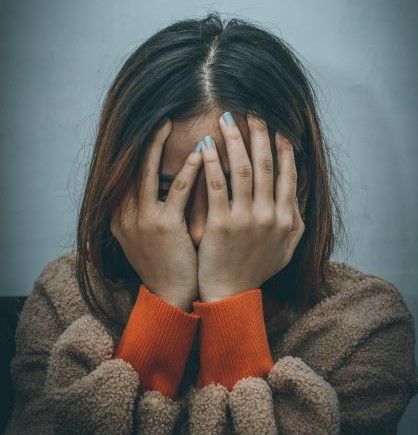The new national suicide prevention hotline, “988,” due to begin service in July, was intended to be an easy-to-remember number aimed at getting depressed individuals nationwide to call anonymously and confidentially to get emotional support by phone. Instead, the organization that runs the existing National Suicide Prevention Lifeline (NSPL) and will control the 988 hotline reportedly has practices that include covert call tracing, which has resulted in callers being unexpectedly visited by police and forcibly taken to psychiatric facilities – even when they were not thinking of suicide.
Callers to the suicide hotline may face even greater risk of involuntary psychiatric hospitalization in the future if Vibrant Emotional Health, operator of the 988 hotline, gets access to the most advanced technologies for call tracing.

The leaders of Vibrant and the NSPL “began lobbying government for direct control over vastly expanded electronic surveillance and geolocation tracking power – broader power than even police routinely wield,” according to Rob Wipond, writing on the Mad in America website.
“If implemented, the result will be an unprecedented invasion of Americans’ privacy – the automatic exposure of the personal information and precise physical location of literally everyone who calls, texts, or chats through 988,” he warns.
Callers to the existing suicide hotline are not made aware that by talking with the call center attendants, they are being screened for suicide, the calls may be traced, and they risk police or mental health professionals being sent to their location and having them transported to a psychiatric facility to be hospitalized against their will.
Already, the determination by call center attendants of which calls to refer to police, based on their use of suicide risk-assessment questionnaires, is likely leading to too many police interventions, forced psychiatric hospitalizations and traumatic experiences for callers. Research studies have found that screening is ineffective in determining who will attempt suicide and results in too many false positives.
Vibrant’s own Lived Experience Committee, comprised of suicide attempt survivors, hotline users and family members, recommended removing potentially traumatizing police interventions from the organization’s practices, according to Wipond. This also would have reduced the number of involuntary psychiatric detainments, but the recommendation was not followed.
Even if mobile mental health crisis teams, trained to make community referrals, responded instead of police to those deemed in danger of suicide, too many people would still likely be unnecessarily transported against their will to psychiatric facilities. Wipond reports that a 2021 study in New York City found that mobile teams of mental health professionals sent out only on calls determined to have no risk of harm still resulted in nearly half of the individuals to whom they responded being sent to psychiatric facilities.
While the U.S. Government Accountability Office and Senate will be examining the geolocating issue, the entirety of the 988 hotline practices for handling calls needs to be reviewed in light of the magnitude of the risk of civil and human rights abuses callers unknowingly face, when they may just want to talk to someone about their sadness. There should also be full disclosure of how the 988 hotline operates so that potential users can make informed decisions about whether to use the service.

Removing the possibility of unwanted and unnecessary police or mental health interventions and subsequent involuntary detention in psychiatric facilities would be consistent with the World Health Organization’s (WHO) recent guidance on ending any nonconsensual mental health treatment. In a series of reports issued in June, WHO wrote that coercive mental health practices are being used “despite the lack of evidence that they offer any benefits, and the significant evidence that they lead to physical and psychological harm and even death.”
“People subjected to coercive practices report feelings of dehumanization, disempowerment and being disrespected,” WHO states. “Many experience it as a form of trauma or re-traumatization leading to a worsening of their condition and increased experiences of distress.”
WHO’s call for an end to involuntary mental health treatment extends even to those experiencing acute mental distress, which would include those calling a suicide prevention hotline. WHO notes that individuals in mental health crisis “are at a heightened risk of their human rights being violated, including through forced admissions and treatment…. These practices have been shown to be harmful to people’s mental, emotional and physical health, sometimes leading to death.”
Citizens Commission on Human Rights (CCHR) co-founder, the late Thomas Szasz, M.D., a psychiatrist and professor of psychiatry considered by many scholars to be psychiatry’s most authoritative critic, agreed.
“The most important deprivation of human and constitutional rights inflicted upon a person said to be mentally ill is involuntary mental hospitalization,” he wrote.
As a human rights organization and mental health industry watchdog, CCHR has exposed and campaigned against the abusive use of involuntary institutionalization and psychiatric treatments given without consent, including forced drugging, restraints, and involuntary electroshock. CCHR’s Mental Health Declaration of Human Rights enumerates the rights we believe each individual is entitled to in the mental health system.
